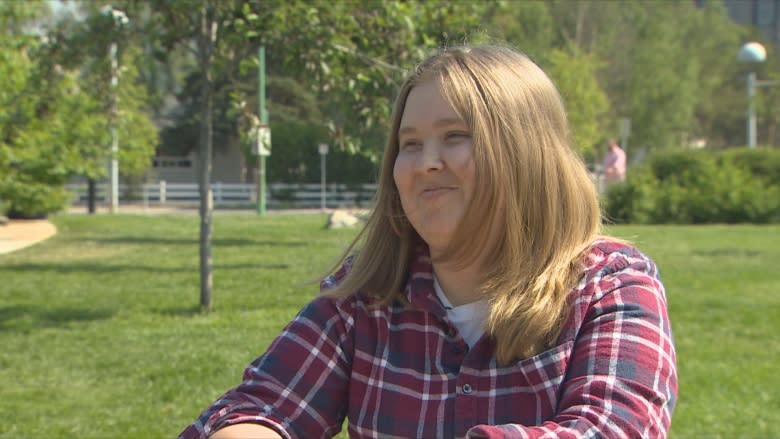N.W.T. first Canadian province or territory to join You Can Play project
A new initiative is aiming to make sports in the Northwest Territories more inclusive for participants regardless of sexual orientation — setting a new standard across Canada's provinces and territories in the process.
Sport North, the territory's governing body for sport, recently announced their participation in the You Can Play initiative, a project that aims to "ensure the safety and inclusion of all in sports — including LGBT athletes, coaches and fans," according to their mission statement.
You Can Play was started in 2012 by NHL scout Patrick Burke. The initiative is perhaps best known for videos created by participating teams, promoting inclusion in their sport.
So far, the initiative counts professional and semi-professional sports teams as well as U.S. and Canadian universities among their ranks. However, the Northwest Territories will become the first Canadian province or territory to take part.
"You Can Play is about respect," said Sport North's Spider Jones, who is coordinating the initiative. "It's about respect for athletes, and coaches and fans, regardless of sexual orientation.
"The message is simple: it's about welcoming LGBTQ [lesbian, gay, bisexual, transgendered, and questioning] athletes to sport," he said. "Making it safe for athletes to participate. It's what they can bring to sport, not based on their sexual orientation."
Homophobia still rampant in sport, according to study
Sport North's participation in You Can Play, announced during its annual general meeting in late May, comes on the heels of a study that shows homophobia is still rampant in Canadian sport.
The study, "Out on the Fields," shows 81 per cent of the Canadians surveyed witnessed or experienced homophobia in sports, while 84 per cent of gay men and 88 per cent of lesbians polled faced slurs in sport.
Jacq Brasseur, a co-founder of It Gets Better Yellowknife who identifies as queer and bisexual, says that issues facing LGBTQ youth are difficult to tackle in fields like sport, which often use gender classifications to separate participants.
"I think when you're talking about any kind of structure that exists in a gender segregated way... LGBTQ issues and identities kind of disrupt that system," she said. "What happens a lot is people just not understanding: 'If I have a trans woman, how do I include them in our sport in a way that is safe and respectful for everybody?'
"It's something that's so new that I think people are having a really hard time, but I think there's a lot of desire to do better."
Jones agrees, saying that participating in You Can Play represents a major milestone for sport in the Northwest Territories.
"It's great that we were able to take the initiative and be proactive," he said. "So often, sports are reactive, but here we're taking the lead."
'Not just lip service'
Though You Can Play is best known for the videos produced by participants, Sport North's participation will include significant changes — "not just lip service," according to Jones.
Though the program is still in the planning stages, Jones says Sport North has identified providing resources for coaches, reviewing and strengthening territorial sport organizations' harassment policies, and sending N.W.T. representatives for specialized sensitivity training to help them work with coaches and officials.
Jones has reached out to It Gets Better Yellowknife for suggestions on how to properly implement its initiative, and has also worked with the Canadian Association for the Advancement of Women and Sport and Physical Activity, who are currently training ex-Olympians to speak to aspiring athletes on LGBTQ issues.
Sport North has even redesigned their Team NWT logo in support of the initiative, creating an alternate version using rainbow colours, instead of its traditional blue and grey.
Despite the fact that the initiative is the first of its kind in Canada, Jones said "we want to make sure we're doing it well and we're doing it right."
"Perhaps we only have one kick at the can," he said. "If we have a gay athlete who chooses to come out, or who wants to give sport a try, then we have to make sure that those supports are there, and they are welcome."
For her part, the fact that the Northwest Territories has chosen to take the lead is impressive to Brasseur, 23, who was born and raised in Yellowknife.
"For me, it means that people in my community care about me, and care about kids like me," she said. "And that makes it feel even more like a home."
Jones said Sport North hopes to launch its program in the spring of 2016, using the upcoming Arctic Winter Games as a chance to film its video and spread the word among participating sports and jurisdictions. In the meantime, it will continue to do background work and get the particulars of the initiative in place.
"I think sport has such a strong reach in the lives of Canadians," said Jones. "And that if we can remind Canadians that this is important, this is significant, we're all about being inclusive, we're all about recognizing people as individuals, then this is just another step down the road."



